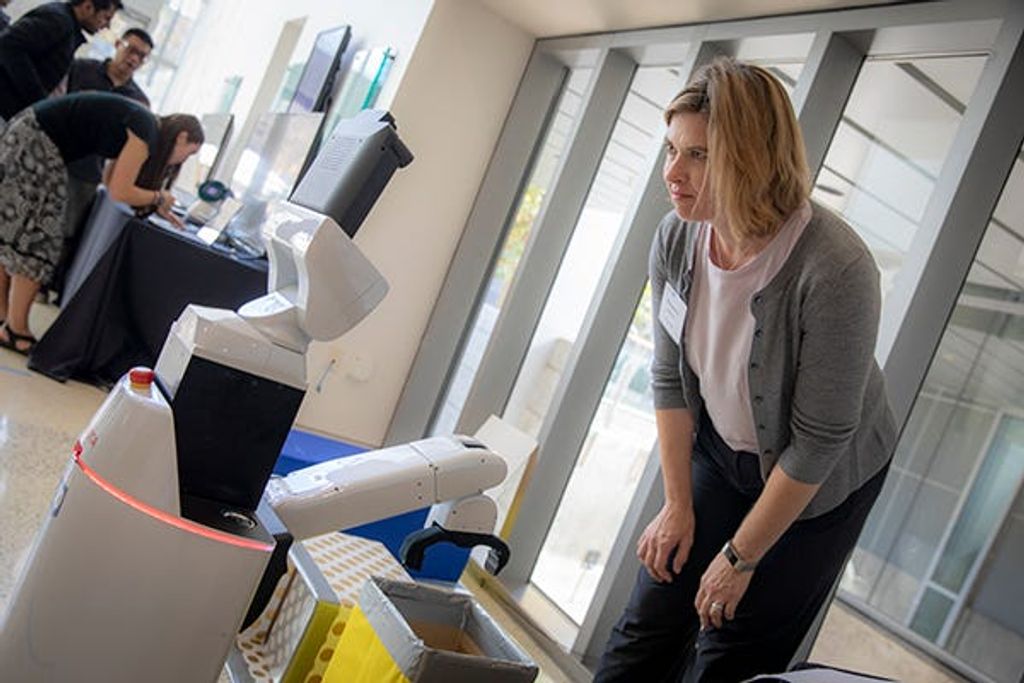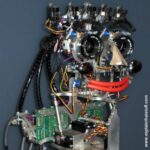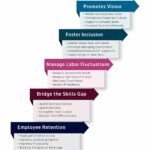In recent years, the rapid advancements in artificial intelligence (AI) have sparked intriguing debates about the future of various professions. Among them, the question of whether AI will replace programmers is a topic that fuels both curiosity and concern. In this article, we will explore the role of AI in programming, the challenges and limitations it faces, and the future of programming with AI. Here are the key takeaways:
Key Takeaways
- AI is not likely to replace programmers but rather augment their capabilities.
- AI tools can automate certain coding tasks and enhance productivity.
- Human creativity, problem-solving, and adaptability are essential in programming.
- Collaboration between humans and AI is the future of programming.
- Programmers need to prepare for the AI-driven future by acquiring new skills and knowledge.
The Role of AI in Programming

Understanding AI’s Impact on Programming
The current state of AI in programming is a topic that fuels both curiosity and concern. AI has undeniably made significant strides in automating certain aspects of programming. Tools like code generators, autocompletion features, and automated testing have become commonplace, streamlining the development process. However, these tools are designed to enhance productivity rather than replace programmers. AI is more likely to augment their capabilities, allowing them to tackle more complex challenges and innovate at a faster pace. The future is likely to see a collaboration between AI and programmers, with intelligent tools enhancing productivity and allowing humans to focus on higher-level tasks that require creativity and problem-solving.
AI Tools for Programmers
AI tools have revolutionized the programming landscape, providing programmers with powerful capabilities to enhance their productivity and efficiency. These tools leverage machine learning algorithms to analyze code, identify patterns, and suggest optimizations. They can even catch potential bugs, saving programmers valuable time and effort. Some popular AI tools for programmers include code generators, autocompletion features, and automated testing frameworks. By automating repetitive tasks and providing intelligent suggestions, AI tools allow programmers to focus on higher-level tasks such as architecture design, problem-solving, and creative thinking.
Benefits of AI in Programming
AI can greatly enhance the productivity and efficiency of programmers by automating repetitive and time-consuming tasks. It can assist in code generation, suggest optimizations, and improve debugging processes. Additionally, AI can help programmers identify and fix coding errors more effectively, leading to higher-quality software products.
One potential benefit of AI in programming is the automation of repetitive and time-consuming tasks. By automating tasks such as code generation and optimization suggestions, programmers can save valuable time and focus on more complex and creative aspects of their work.
Another advantage of AI in programming is its ability to improve the debugging process. AI algorithms can analyze code and identify errors more effectively than manual methods, leading to faster bug fixes and higher-quality software.
Furthermore, AI can assist programmers in identifying and fixing coding errors. By analyzing code and suggesting improvements, AI can help programmers produce cleaner and more efficient code, resulting in software products that are more reliable and performant.
Overall, the integration of AI in programming offers numerous benefits, including increased productivity, improved debugging processes, and higher-quality software products.
Challenges and Limitations of AI in Programming

Ethical Considerations in AI Programming
Ethical considerations surrounding AI algorithms, data privacy, and security must be carefully addressed to ensure responsible and fair use of AI. The reliance on black-box AI systems that produce complex code without sufficient transparency can make debugging and maintaining AI-generated code challenging. It is important to understand the current limitations of AI and anticipate its future impact on the programming profession. While AI may bring about significant changes in the way programming tasks are performed, human programmers will likely remain indispensable, utilizing AI as a powerful tool to augment their work.
AI’s Limitations in Complex Problem Solving
While AI has demonstrated proficiency in certain coding tasks, it currently lacks the creativity, intuition, and contextual understanding that human programmers bring to the table. Programming often requires not just logical reasoning but also a deep understanding of the project’s goals, user needs, and industry-specific nuances — elements that are challenging for AI to grasp fully.
The Human Touch: Programming is as much about problem-solving and creativity as it is about writing code. Human programmers possess the ability to understand complex requirements, communicate effectively with stakeholders, and make judgment calls based on their experience and expertise. These human qualities are essential in tackling complex problem-solving tasks that go beyond the capabilities of AI.
Collaboration and Innovation: Rather than replacing programmers, AI is more likely to augment their capabilities, allowing them to tackle more complex challenges and innovate at a faster pace. The emphasis may shift from routine coding to higher-level tasks that require human ingenuity.
Conclusion: The idea of AI replacing programmers is a complex and multifaceted topic. While AI has proven valuable in automating certain coding tasks, the essence of programming lies in human creativity, problem-solving, and adaptability. The future is likely to see a collaboration between AI and programmers, with intelligent tools enhancing productivity and allowing humans to focus on higher-level tasks that require their unique skills and expertise.
The Need for Human Creativity in Programming
Programming is as much about problem-solving and creativity as it is about writing code. Human programmers possess the ability to understand complex requirements, communicate effectively with stakeholders, and adapt to changing project dynamics. These qualities are deeply rooted in human experiences and are currently beyond the reach of AI.
While AI has demonstrated proficiency in certain coding tasks, it currently lacks the creativity, intuition, and contextual understanding that human programmers bring to the table. Programming often requires not just logical reasoning but also a deep understanding of the project’s goals, user needs, and industry-specific nuances — elements that are challenging for AI to grasp fully.
As AI continues to evolve, it’s likely that the nature of programming roles will change. Rather than replacing programmers, AI is more likely to augment their capabilities, allowing them to tackle more complex challenges and innovate at a faster pace. The symbiotic relationship between AI and programmers holds the potential to revolutionize the way we approach software development, creating a future where both human and machine intelligence contribute to building the next generation of digital innovations.
The Future of Programming with AI

Collaboration between Humans and AI
The future of programming is likely to see a collaboration between AI and programmers, with intelligent tools enhancing productivity and allowing humans to focus on what they do best — bringing innovative solutions to the ever-evolving world of technology. This symbiotic relationship between AI and programmers holds the potential to revolutionize the way we approach software development, creating a future where both human and machine intelligence contribute to building the next generation of digital innovations.
- AI tools can analyze vast amounts of code to identify patterns, suggest optimizations, and catch potential bugs, allowing programmers to focus on higher-level tasks such as architecture design, problem-solving, and creative thinking.
- Automation of repetitive tasks through AI can free up programmers’ time and energy, enabling them to focus on developing new ideas and dealing with more challenging challenges.
As the field of programming evolves, the collaboration between human programmers and AI tools will become increasingly important. This closer working relationship between humans and AI will shape the future of programming, where both human ingenuity and artificial intelligence contribute to driving innovation and advancements in technology.
The Evolution of Programming Jobs
The evolution of programming has democratized the field, making it accessible to a broader spectrum of individuals. No longer is coding limited to geniuses with intricate knowledge of computer internals or operating systems. Now, anyone can adeptly construct software that not only functions seamlessly but also serves the needs of thousands of users. This dynamic evolution has led to a remarkable journey from rudimentary machine languages to contemporary programming languages and paradigms. Each innovation has been meticulously crafted to cater to the nuanced demands of the ever-expanding technology sector.
Preparing for the AI-Driven Future
The future is likely to see a collaboration between AI and programmers, with intelligent tools enhancing productivity and allowing humans to focus on what they do best — bringing innovative solutions to the ever-evolving world of technology. The symbiotic relationship between AI and programmers holds the potential to revolutionize the way we approach software development, creating a future where both human and machine intelligence contribute to building the next generation of digital innovations.
- Ethical concerns related to AI, such as bias and privacy, became prominent, leading to an emphasis on responsible coding practices.
- AI for Autonomous Systems (2020s – Present): AI is increasingly used in autonomous systems like self-driving cars and drones, requiring complex algorithms for perception and decision-making.
- Future Outlook (Beyond 2020s): AI, including models like ChatGPT, will continue to evolve, with a focus on making AI more interpretable, ethical, and adaptable to diverse tasks.
To remain relevant in an AI-driven future, programmers can focus on developing skills that complement AI technology. These skills include understanding the underlying principles of AI, enhancing their knowledge of data analysis and machine learning algorithms, and gaining expertise in areas where AI can augment their capabilities. By embracing the collaboration between humans and AI, programmers can position themselves at the forefront of technological advancements and contribute to shaping the future of programming.
Conclusion
In conclusion, the idea of AI replacing programmers is a complex and multifaceted topic. While AI has proven valuable in automating certain coding tasks, the essence of programming lies in human creativity, problem-solving, and adaptability. The future is likely to see a collaboration between AI and programmers, with intelligent tools enhancing productivity and allowing humans to focus on higher-level tasks. Rather than replacing programmers, AI is more likely to augment their capabilities, allowing them to tackle more complex challenges and innovate at a faster pace.
Frequently Asked Questions
Will AI completely replace human programmers?
While AI may automate certain aspects of programming, it is unlikely to completely replace human programmers. Programming requires a deep understanding of business requirements, critical thinking, and creativity, which are skills that AI currently lacks.
What role will AI play in programming?
AI can play a significant role in programming by automating repetitive tasks, providing code suggestions, and assisting with debugging. It can enhance productivity and efficiency for programmers.
What are the limitations of AI in programming?
AI currently struggles with complex problem-solving and creativity, which are essential aspects of programming. It also lacks the ability to understand context and make subjective decisions.
Will AI reduce the demand for human programmers?
While AI may automate certain coding tasks, it is more likely to augment rather than replace human programmers. The demand for skilled programmers will continue to exist as AI tools and platforms require expert guidance and oversight.
How can programmers prepare for the AI-driven future?
Programmers can prepare for the AI-driven future by continuously updating their skills, staying updated on the latest AI technologies, and focusing on tasks that require human creativity and problem-solving.
What is the future of collaboration between humans and AI in programming?
The future of programming is likely to see a collaboration between humans and AI. AI can assist programmers in automating repetitive tasks and providing suggestions, while programmers bring creativity, critical thinking, and adaptability to the table.




